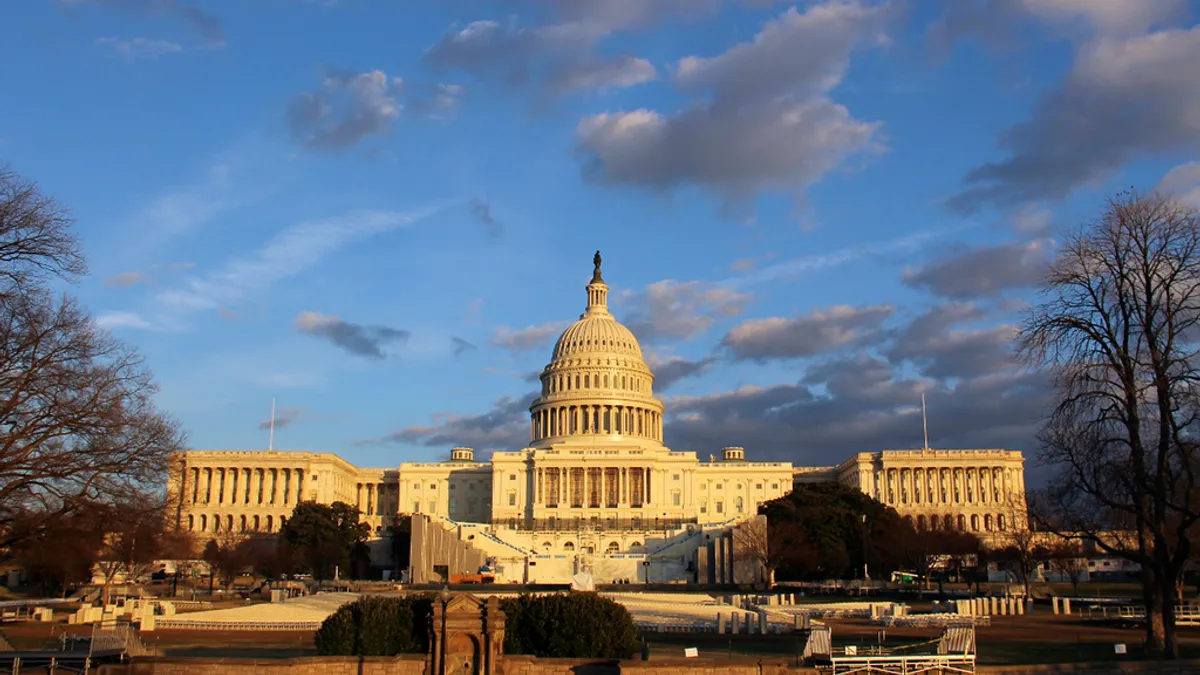Dive Brief:
- After months without action, dozens of lawmakers from the Senate and House met in a conference committee last week aimed at developing bipartisan energy legislation, but time is running out in an election-year session, the Associated Press reports.
- Associated Press notes chances for the bill to reach President Obama's desk have dimmed among partisanship and the inclusion of certain measures guaranteed to bring a veto.
- U.S. Sen. Lisa Murkowski (R-Alaska), who chairs the Senate Energy Committee, kicked off the conference by reminding fellow lawmakers their goal is to develop energy modernization legislation which can ultimately be signed into law.
Dive Insight:
Time is running out to deliver an energy bill to President Obama's desk but Murkowski, who has been one of the key drivers behind S. 2012, the Energy Policy Modernization Act of 2016, implored her colleagues to find common ground.
“Our task now is to develop a final bill that can be signed into law. That’s my goal here. My goal is to update our energy policies in this country and get a conference report, a bill that can be signed into law by the president,” she said in a statement. “We all know that we are going to be down in the weeds on legislative text, so I want to point to the big picture, so we won’t forget why we are here."
Murkowski added that it has been nine years since the country's energy policy has been updated.
The Senate passed S. 2012 back in May, on a 85-12 vote. It was the first broad energy legislation to emerge from the chamber since 2007. The House passed a version in December 2015, but as that version has more controversial provisions which could draw a veto or make compromise difficult. Shortly after that measure passed, the White House announced a likely veto of H.R. 8 soon because it “would undermine already successful initiatives," according to a statement.
According to the adminstration, the House version contains more than a half dozen provisions which could draw a Presidential veto, including hampering the Department of Energy's ability to enforce standards to ensure energy efficiency for buildings. Other objections include undermining the current hydropower licensing process, broadening FERC's authority to establish deadlines for agencies reviewing natural gas environmental standards and include operational provisions to how capacity markets operate in RTOs and ISOs.
There are five titles covered by Senate bill: Efficiency, Infrastructure, Supply, Accountability and Conservation Reauthorization. Though many of the topics are the same, H.R. 8 has seven titles, including sections on marine hydrokinetic energy and shared renewables.














